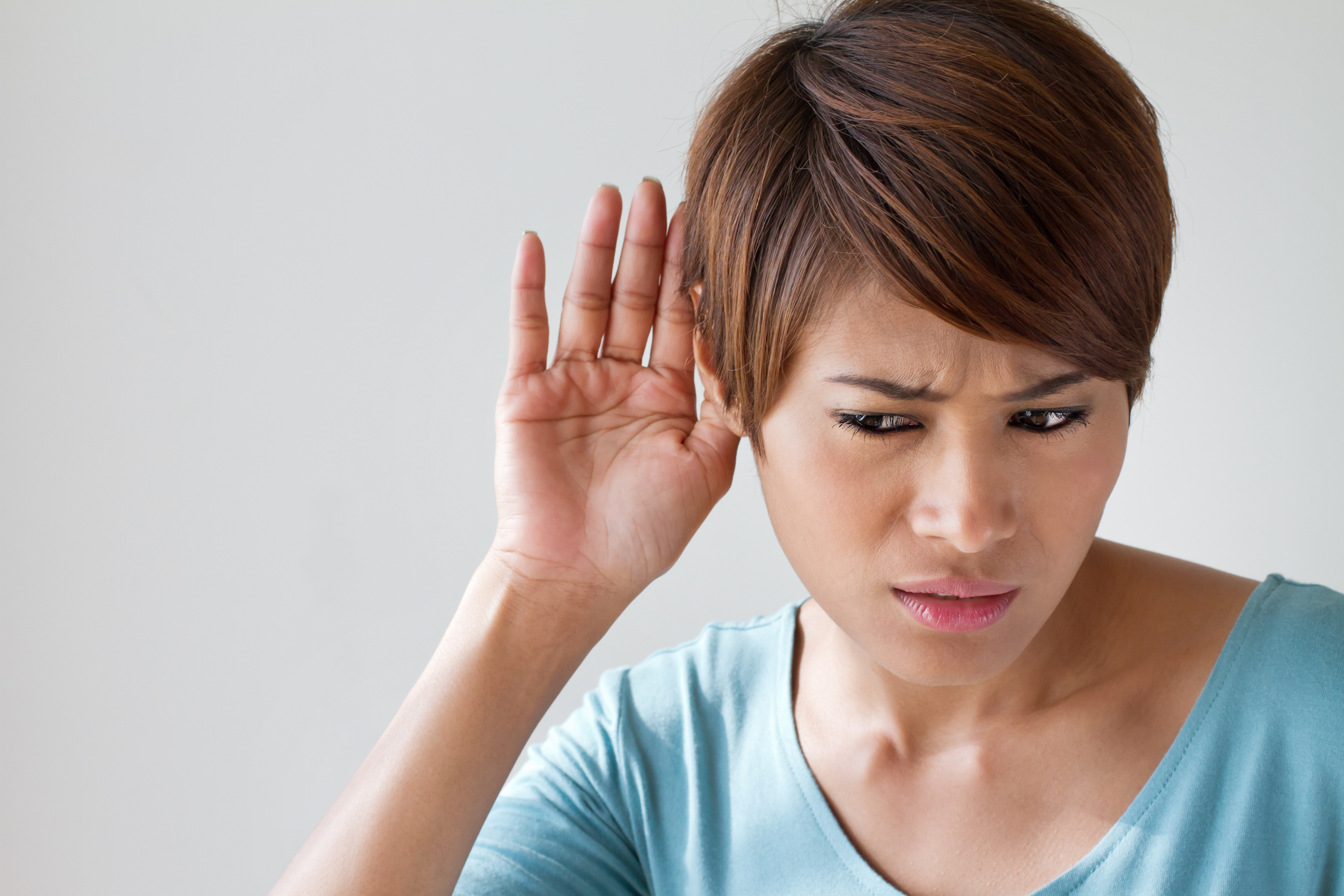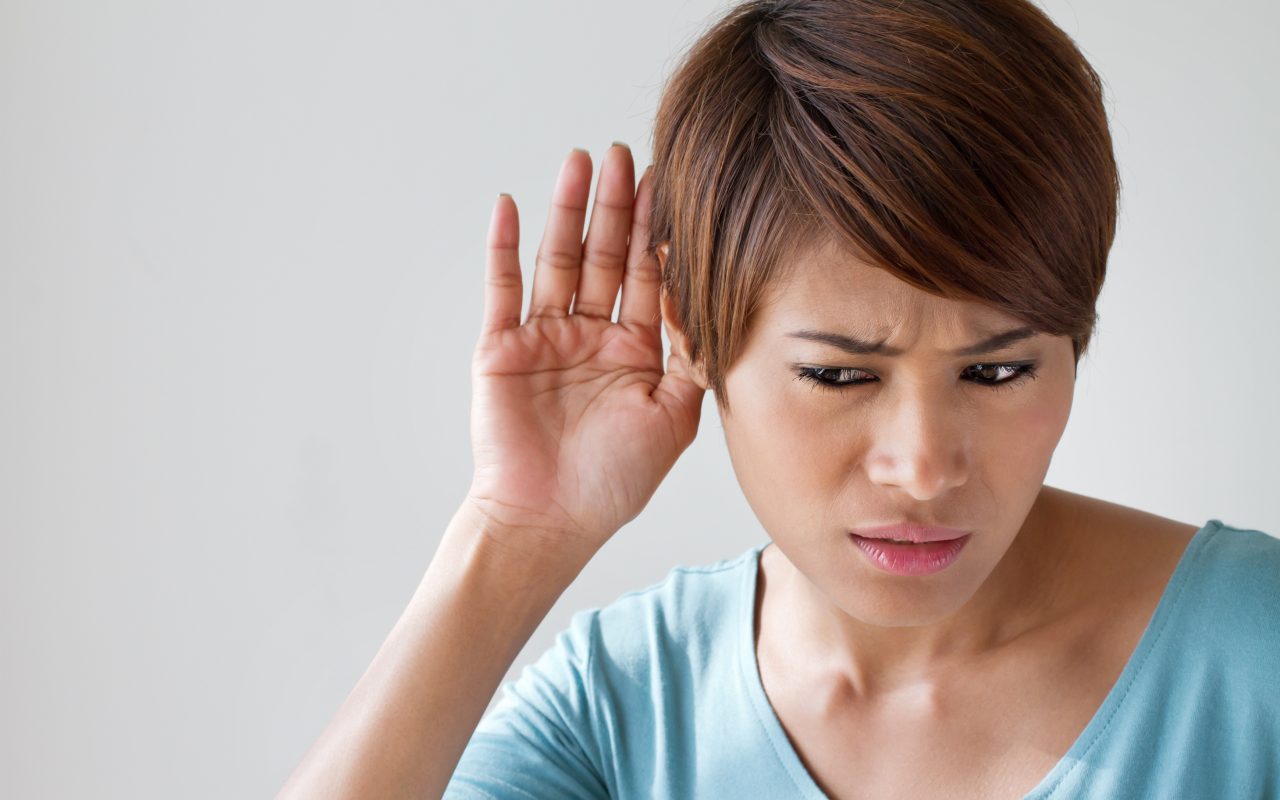Hearing Aids and Restoration of Hearing Loss
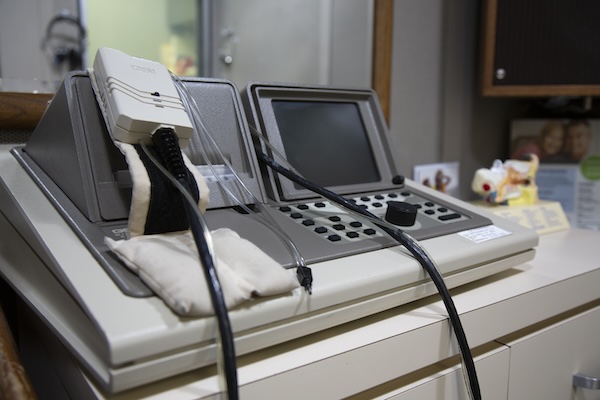
It is possible to have a hearing loss but not know it simply because it does not interfere with everyday living. Or you may experience difficulty hearing only in certain situations because of ambient sound.
If it is determined that your hearing problem cannot be helped by medical or surgical treatments, a hearing aid might be prescribed.
Hearing Aids and Restoration of Hearing Loss
Head injury or stroke may cause permanent damage. Streptomycin, diuretics, ototoxic drugs and large doses of aspirin can cause damage to the inner ear. Heart or kidney disease, diabetes, smoking, emphysema or stroke can disrupt blood flow to the inner ear, also causing permanent hearing loss.
Some indications of hearing loss are:
- Inability to hear very quiet sounds
- Difficulty distinguishing between similar sounding words
- Listening to the television or radio with abnormally loud volume
- Trouble distinguishing conversations from surrounding the noise
- Aiding hearing by increased reliance on sight
- Loss of very high or very low pitch
- A feeling of insecurity or isolation
- Delayed speech
The Hearing Aid Function
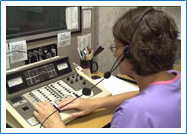
Generally, there are five basic designs for hearing aids.
- A body type hearing aid is worn on the body with a cord connecting the aid to a receiver that snaps onto the ear mold.
- A behind-the-ear (BTE) hearing aid is smaller and requires no connecting cord. It is positioned behind the ear and is connected by clear tubing to the ear mold.
- An eyeglass hearing aid is a variation of the behind-the-ear model, simply mounted on a pair of glasses.
- All-in-the-ear hearing aids are ear molds that contain all of the hearing aid mechanisms.
- Canal hearing aids are actually inserted in the ear canal, making them the smallest type available.
Clinical research has indicated that a hearing aid wearer derives the most benefit from hearing aids when wearing two devices. This increases the quantity of sound signals received in both ears. Hearing aids help those who have experienced hearing loss find a way to rediscover some of what they had lost with their hearing. Many people with a hearing problem can be helped with medical treatment, surgery or hearing aids.
Tinnitus
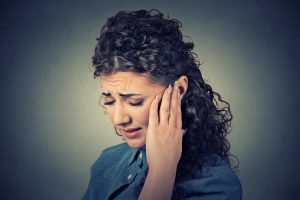 Tinnitus may be an intermittent or continuous sound in one or both ears. Its pitch can go from a low roar to a high squeal or whine, or it can have many sounds.
Tinnitus may be an intermittent or continuous sound in one or both ears. Its pitch can go from a low roar to a high squeal or whine, or it can have many sounds.
Persistent tinnitus lasts more than six months. Prior to any treatment, it is important to undergo a thorough examination and evaluation by an ENT (ears, nose, and throat) specialist, or otolaryngologist, and an audiologist.
What Are the Symptoms of Tinnitus?
Tinnitus is not a disease per se, but a common symptom, and because it involves the perception of hearing sound or sounds in one or both ears, it is commonly associated with the hearing system. Various parts of the hearing system, including the inner ear, are often responsible for this symptom. At times, it is relatively easy to associate the symptom of tinnitus with specific problems affecting the hearing system; at other times, the connection is less clear.Common symptoms of tinnitus include:
- Constant high- or low-pitched ringing in ears
- Intermittent or constant roaring in ears
- Pulsation or beating noises in ears
- Associated with or without hearing loss
What causes tinnitus?
Most tinnitus is primary tinnitus, where no cause can be identified aside from hearing loss.Secondary tinnitus is associated with a specific underlying cause that may be treatable. Your ENT specialist will help you distinguish whether your tinnitus is primary or secondary.
Tinnitus may be caused by different parts of the hearing system. The outer ear (pinna and ear canal) may be involved. Excessive ear wax, especially if the wax touches the ear drum, causing pressure and changing how the ear drum vibrates, can result in tinnitus.
Middle ear problems can also cause tinnitus, including middle ear infection (common) and otosclerosis (uncommon), which hardens the tiny ear bones or ossicles. Another rare cause of tinnitus from the middle ear that does not result in hearing loss is muscle spasms in one of the two tiny muscles in the ear. In this case, the tinnitus can be intermittent and sometimes your examiner may also be able to hear the sounds.
Most subjective tinnitus associated with the hearing system originates in the inner ear. Damage and loss of the tiny sensory hair cells in the inner ear (that can be caused by different factors such as noise damage, medications, and age) may also be associated with tinnitus.
One of the preventable causes of tinnitus is excessive noise exposure. So be careful to take special precautions to protect your ears and hearing in noisy environments.
Medications can also damage inner ear hair cells and cause tinnitus. These include both non-prescription medications such as aspirin and acetaminophen, when taken in high doses, and prescription medication including certain diuretics and antibiotics. As we age, the incidence of tinnitus increases.
Tinnitus may also originate from an abnormality in, or near, the hearing portion of the brain. These include a variety of uncommon disorders such as damage from head trauma.
Tinnitus that sounds like your pulse or heartbeat is known as “pulsatile tinnitus.” Infrequently, pulsatile tinnitus may signal the presence of cardiovascular disease, narrowed arteries, or a vascular tumor in your head and neck, or ear. If you are experiencing this type of tinnitus, you should consult a physician as soon as possible for evaluation.
Finally, non-auditory conditions and lifestyle factors can exacerbate tinnitus. Medical conditions such as temporomandibular joint arthralgia (TMJ), depression, anxiety, insomnia, and muscular stress and fatigue may lead to, or exacerbate, tinnitus.
Treatment options
 When you are evaluated for tinnitus, the first thing the doctor will do is obtain a complete history and perform a thorough, targeted physical examination. If your tinnitus is one-sided (unilateral), associated with hearing loss, or persistent, a hearing test, or audiogram, should be ordered. There is typically no need for radiologic testing (X-ray, CT scan or MRI scan) unless your tinnitus is pulsatile or associated with uneven, asymmetric hearing loss or neurological abnormalities. Your doctor will determine how bothersome your tinnitus is by asking you certain questions or having you complete a self-assessment questionnaire.
When you are evaluated for tinnitus, the first thing the doctor will do is obtain a complete history and perform a thorough, targeted physical examination. If your tinnitus is one-sided (unilateral), associated with hearing loss, or persistent, a hearing test, or audiogram, should be ordered. There is typically no need for radiologic testing (X-ray, CT scan or MRI scan) unless your tinnitus is pulsatile or associated with uneven, asymmetric hearing loss or neurological abnormalities. Your doctor will determine how bothersome your tinnitus is by asking you certain questions or having you complete a self-assessment questionnaire.
Although there is no one “cure” for tinnitus, there are several options available that can help patients with tinnitus. Because tinnitus is relatively common and not always worrisome, not all patients need an evaluation. If your ENT specialist finds a specific cause for your tinnitus, they may be able to offer specific treatment to eliminate the noise. This may include removing wax or hair from your ear canal, treating middle ear fluid, treating arthritis in the jaw joint, etc. For many patients who have experienced tinnitus for less than six months, its natural course is to improve over time, and most people do not go on to have persistent, bothersome tinnitus.
Some patients with hearing loss and tinnitus have improvement with the use of hearing aids, with or without built-in ear-level maskers. Sound therapies that involve simple things like background music or noise or specialized ear-level maskers may be a reasonable treatment option. The effects of tinnitus on quality of life may also be improved by cognitive behavioral therapy (CBT) counseling, which usually involves a series of weekly sessions led by a trained professional.


